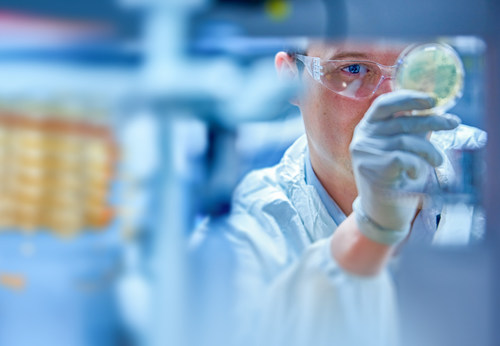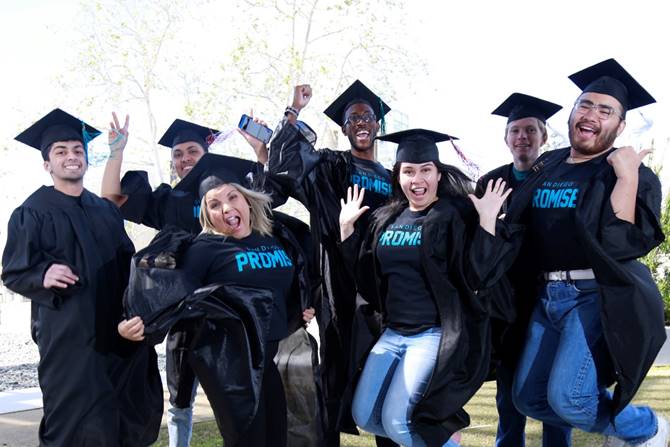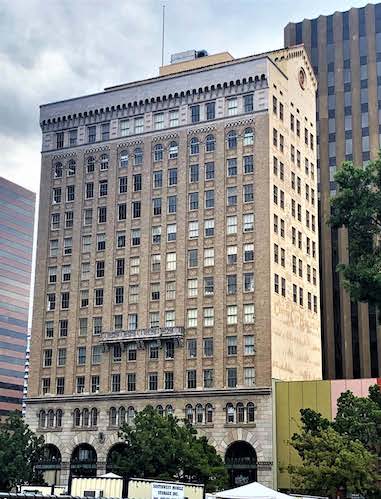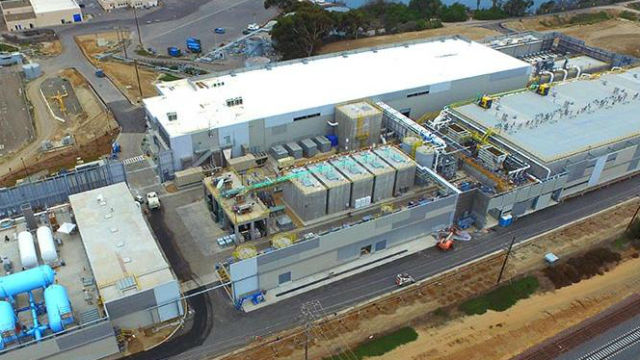Daily Business Report: Friday, July 16, 2021
The Global Chip Shortage Impact on American Automakers
Visual Capitalist
Chips, or semiconductor devices, are behind all of the world’s increasingly complex electrical and digital devices.
That includes well-known items like computers and smartphones, but also other products that are becoming “smarter” including appliances, watches, and especially cars.
The automotive industry accounts for a large share of global chip consumption, with modern cars having smart and complex entertainment systems, navigation, and sensors. A modern car can have anywhere from 500-1,500 different chips powering its different functions.
But when the COVID-19 pandemic hit in 2020, shifting consumer demands and a slowing economy called for a reduction in semiconductor manufacturing. And unfortunately, it can take the supply chain a long time to come back online, as much as 1.5 years.
American Manufacturers Take the Biggest Hit
As the global economy has started to bounce back and demand for digital devices has increased, the chip manufacturing supply chain has become strained on its still-low supply. And unfortunately for automakers, cars are taking the brunt of the hit.
Photo by Obi Onyeador on Unsplash
Sports tech company BlazePod opens first U.S.
office in Vista to support company growth, strategy
BlazePod, the creator of the Flash Reflex (FRX) training program that combines cognitive intelligence with physical exercises to enable athletes of all levels to improve reaction time and performance, is opening an office in Vista.

BlazePod’s office is located at 1281 Liberty Way, Suite A, Vista. The U.S. BlazePod team is led by Brian Farber, head of business development, and Tom Judge, Head of U.S. marketing. The company is looking to hire additional employees in the San Diego area this year.
Founded in 2017, BlazePod has raised a total of $10 million in funding over two rounds, and has experienced exponential year-over-year growth. The San Diego-based team will focus on driving marketing initiatives and sales education, and will also oversee the company’s U.S. operations and strategy.
Rady Children’s Institute partners with drugmaker
to discover and develop therapies for child-onset disease
Rady Children’s Institute for Genomic Medicine (RCIGM) has partnered with Japanese drugmaker Takeda Pharmaceutical to discover and develop therapies for rare child-onset genetic diseases.
Through the collaboration, RCIGM will provide Takeda with aggregated, de-identified genomic and phenotypic data derived from whole-genome sequencing performed on patients in specific disease cohorts. Takeda will use the data to discover and develop potential targeted therapeutics.
In June, RCIGM — which is housed within Rady Children’s Hospital and Health Center in Encinitas — began working with Pacific Biosciences to explore the use of whole-genome sequencing data to diagnose rare diseases.
“Rady Children’s Institute for Genomic Medicine has led the way in using whole-genome sequencing to better understand the genetic drivers of rare diseases in children,” said Dan Curran, head of the rare genetics and hematology therapeutic area unit at Takeda. “It’s through these efforts that we hope to derive new insights on how childhood-onset diseases manifest, enabling us to more quickly develop transformative therapies for the families who desperately need them.”

Thermo Fisher Scientific opens cGMP plasma
DNA manufacturing facility in Carlsbad
Thermo Fisher Scientific Inc. has opened a new plasmid DNA manufacturing facility in Carlsbad, enabling it to meet rapidly growing demand for plasmid DNA-based therapies and vital mRNA-based vaccines.
“Demand for commercial plasmid DNA is outpacing supply as the development of transformative gene therapies and vaccines accelerates globally,” said Marc N. Casper, chairman, president and chief executive officer. “Investments in state-of-the-art manufacturing such as this ensure that our customers have reliable access to the high-quality materials and capabilities that have become vital for the production of these new lifesaving medicines and the patients in need.”
The 67,000-square-foot facility, located on Thermo Fisher’s Carlsbad campus, is part of an investment strategy to ensure customers can reliably meet growing global demand for cell and gene therapies and vaccines.
Plasmid DNA is increasingly used as a therapeutic agent in gene therapies and certain vaccines. Its advantages, including weak immunogenicity, increased safety and ease of manufacture, have dramatically increased demand for materials and manufacturing capacity globally.

San Diego Promise exceeds $2 million in fundraising
Fundraising for the tuition-free San Diego Promise that has opened the doors to a college education for nearly 6,500 students to date has topped $2 million, with a record $614,454 contributed during the fiscal year ending June 30.
Donations to the San Diego Promise go directly to students, with no overhead costs applied. There are now 337 Promise programs in the United States, and the San Diego Promise has been highlighted as among those setting the pace.
Support for the San Diego Promise has been growing steadily. The 2020-21 fundraising total is more than $150,000 greater than any previous year’s total.
Among the more generous donations to date this year include a $200,000 matching gift from The San Diego Foundation; a $110,000 donation from San Diego Philanthropist Roger Frey; $100,000 from Price Philanthropies; and $10,000 gifts from Chancellor Emerita Carroll, SDCCD Executive Vice Chancellor for Business and Technology Bonnie Ann Dowd, and U.S. Bank.
Civic Center Plaza lenders tell city to pay rent or leave
Lisa Halverstadt |Voice of San Diego
Lenders who fronted cash to facilitate the city’s Civic Center Plaza lease are done sitting on the sidelines amid the city’s legal moves to void the 20-year deal.
An attorney for those lenders sent a letter to the city Wednesday demanding that the city make the roughly $318,000 rent payment it hasn’t paid or prepare for the possible eviction of the downtown high rise that houses hundreds of city workers, VOSD’s Lisa Halverstadt reports.
The city decided to stop writing rent checks for Civic Center Plaza earlier this month following the revelation that Cisterra Development, the city’s landlord in the Civic Center and 101 Ash St. leases, paid the city’s volunteer real estate consultant for his work on the deals. City Attorney Mara Elliott and others argue the payments amount to a conflict of interest that should kill both deals.
The city last year also stopped paying rent at 101 Ash St. and asked the court to essentially bless its decision to halt those payments, arguing that it should not pay for a building it is for now unable to use.
The city’s facing a different situation with 18-story Civic Center Plaza, which it now relies on to house more than a dozen city departments.
Historic Centre City building
in Downtown sold for $10 million
Dan Floit has acquired the historic Centre City Building, a 95,000-square-foot office and retail building located in Downtown San Diego, for $10 million.
The 14-story building is located at 233 A St.
Once considered as the tallest building in Downtown San Diego, the Centre City Building was originally constructed in 1927 and designed by award-winning architect Frank W. Stevenson. It features era-unique designs, including a gabled rooftop and rosette windows.
David Santistevan, Ciara Trujillo, Erin McKinley, and Gunder Creager of Colliers’ San Diego Land Team handled the transaction.
Citadel Defense obtains $4 million contract
for counter-drone systems
Citadel Defense in San Diego has secured $4 million in new government contracts in June as demand for combat-proven counter drone solutions accelerates. Rapid proliferation of small, low-cost drones threatens personnel and critical assets, impacting the military’s ability to conduct successful operations. Unmanned systems have been used by terrorists to collect intelligence, bypass ground-based physical barriers, and carry out highly effective attacks.
The undisclosed government customer has selected Citadel’s Titan as the preferred radio frequency sensor for both standalone and highly integrated layered defense solutions. The Titan systems will be utilized for pre-deployment training, mobile security, and fixed site protection.
“Citadel’s advanced algorithms, artificial intelligence, and autonomous capabilities serve as a force multiplier when protecting against unmanned system threats in resource-constrained environments,” said Christopher Williams, CEO of Citadel Defense.
Carlsbad small business loan program revised
The Carlsbad City Council approved revisions and the extension of terms for its COVID-19 small business loan program, allowing more businesses to access financial assistance when they need it most and to further support loan recipients who have ongoing impacts from state and county health orders.
Carlsbad businesses can apply for one or both types of loans outlined in the city’s $5 million economic recovery and revitalization initiative including:
• Micro-loans — $5,000 to $10,000
• Small business recovery loans — $10,000 to $50,000
To apply, click here
Stemson Therapeutics secures $15 million
Series A financing to cure hair loss
Stemson Therapeutics announced the closing of a DCVC Bio-led $15 million Series A financing to advance development of Stemson’s proprietary therapeutic solution to cure hair loss. Genoa Ventures, AbbVie Ventures and other investors join in supporting Stemson’s efforts to restore human hair growth with a novel cell regeneration technology using the patient’s own cells to generate new hair follicles.
“Almost 30 years have passed since the last FDA-approved hair loss treatment, yet millions still suffer the physical and mental impact of losing their hair each year,” said Dr. Kiersten Stead, co-managing partner at DCVC Bio. “Stemson’s novel stem cell engineering platform has the potential to cure hair loss once and for all, treating not only the physical symptoms of this complex problem, but the mental burden as well.”




